PAPUSSA
Policy Briefs
|
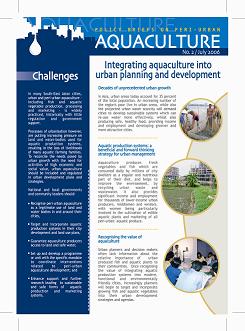 |
|
The PAPUSSA Programme has made available an
increasing amount of information on peri-urban aquatic
production systems in South-East Asian cities, their benefits
and constraints. To further support the strengthening the
peri-urban aquatic production and marketing systems in the
above-mentioned cities, as well as in other South-East Asian
cities, stakeholders in these cities identified 4 key
recommendations (see below) to guide policy makers and other
senior stakeholders in further development of the sector. These
recommendations include the need to:
- Integrate aquaculture into urban planning
and development strategies
- Manage health risks to develop wastewater
into a valuable resource and asset
- Improve public health and food safety
concerned with urban aquaculture, and
- Promote more sustainable production and
marketing strategies.
An overall description of the importance, the
need and recommendations for development and policy making on
(peri)urban aquaculture is given in a first and introductory
Policy Brief. Each of these recommendations has further been
addressed in greater depth in 4 additional Policy Briefs. All
guidelines given are based on PAPUSSA research and output, and
aim to assist in the process of decision-making rather than to
provide definitive answers.
Policy Briefs
-
Why
are aquatic production systems important to South-East Asian
cities? [629 KB]
-
Integrating aquaculture into urban planning and development
[1462 KB]
-
Managing health risks to develop wastewater into a valuable
resource and asset [1479 KB]
-
Improving public health and food safety [1468 KB]
-
Promoting sustainable aquatic production and marketing to
reduce poverty and hunger [1844 KB]
|
|
|
|
Project Reports by University of
Durham
|
|
Water Treatment Capacity and Nutrient
Flux Sampling and Analysis of Selected Aquatic Plant and Fish
Culture Production Systems in Hanoi, Phnom Penh, HCMC and Bangkok.
|
|
|
> View report
here
[998 KB]
|
|
|
An Assessment of the
sustainability of Tilapia Culture in Central Thailand
|
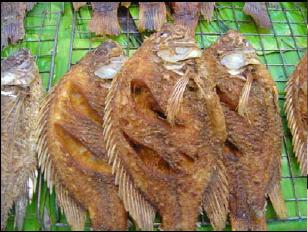 |
|
> View report
here
[1.392 KB]
In Hanoi a poster has been created that shows an overview of
tilapia seed production in rice fields - view
here [179 KB] |
|
|
Health Related Reports
|
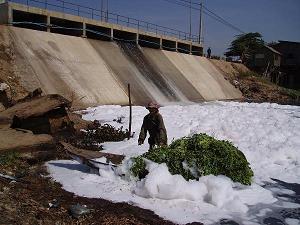 |
|
- Health
impacts of wastewater use in Aquatic Food Production Systems in
Peri-
Urban Southeast Asia.
This final report describes the research that has
been done to assess major health problems experienced and to
obtain health-related information for the planning of in-depth
health studies of farmers engaged in wastewater-fed aquaculture.
> View report
here
> View questionnaire
here
- Food safety of aquatic plants and fish
raised in wastewater-fed ponds -
> view report
here
|
|
|
Intervention Report
Ho Chi Minh City - Trialing a new low investment
method for disseminating out information to peri-urban fish farmers
in Ho Chi Minh City
|
 |
|
A report is now available on an intervention
researching into a novel and low cost method of disseminating
technical information on fish culture to peri-urban fish farmers
in Ho Chi Minh City
By Huynh Pham Viet Huy, University of Agriculture and Forestry,
HCMC, Vietnam
> Report
[652 KB]
|
|
|
|
Final Progress and Planning Meeting
|
|
Household
Baseline and Monitoring Surveys
|
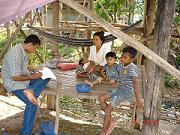 |
|
Household Baseline and Monitoring surveys were
carried out over a period of one year with over 200 households
involved in growing fish and aquatic plants in each of the four
study cities in order to better understand the socio economic,
production, and health aspects at a household and community
level. The resulting detailed data collected was analysed and is
presented in the following reports which give an overall picture
of the production systems and the livelihoods of the people
involved in them.
> Hanoi
[1.244 KB]
>
Ho
Chi Minh City [1.887 KB]
>
Baseline Questionnaire (in
Vietnamese) [260 KB]
>
Monitoring Questionnaire (in
Vietnamese) [214 KB]
>
Phnom
Penh (in English) [2.798 KB]
>
Baseline Questionnaire (in Khmer)
[160 KB]
>
Monitoring Questionnaire (in Khmer)
[242 KB] > Bangkok
>
Baseline Questionnaire (in Thai)
[132 KB]
>
Monitoring Questionnaire (in Thai)
[103 KB]
|
|
|
A Users Manual for the Cultivation of
Commercially Important Edible Aquatic Plants in and around 4
Cities in SE Asia
|
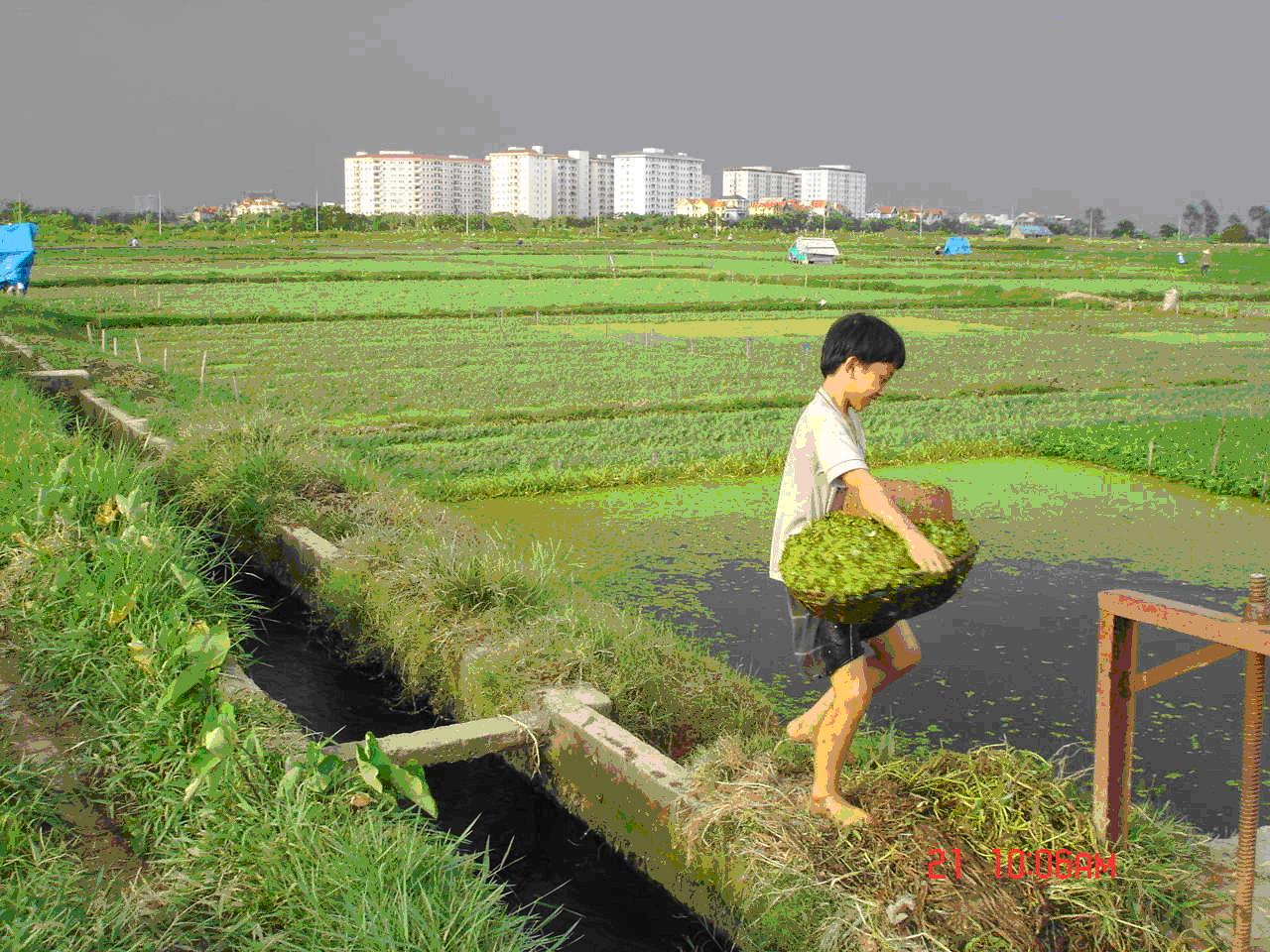 |
|
This manual is an output from the EC funded
Papussa (Production in Aquatic Peri-urban Systems in SE Asia)
project and was conceived and put together after finding there
was little if any technical support or information for the many
existing aquatic plant growers or those who might wish to begin
cultivating them on a commercial basis. The manual was put
together by Papussa staff in Bangkok, Hanoi, Ho Chi Minh City
and Phnom Penh after three years of working with aquatic plants
farmers in these cities.
> view report
>
view report in Khmer
>
view report in Thai
>
view report in Vietnamese |
|
|
|
Production
in Aquatic Peri-urban Systems in South East Asia: The Current State
and Potential of Ornamental Fish Production in Bangkok, Thailand and
in Ho Chi Minh City, Vietnam
|
|
Ornamental
Fish Study Tour in Bangkok on 4-7th April 2006
|
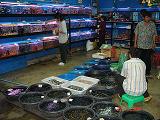 |
|
- Wanwisa Saelee, AARM/Asian Institute of
Technology
This report is available in English, Vietnamese, Thai and
Khmer. Please choose the language you prefer by clicking on
the links below.
>
view report (in English)
- BÁO CÁO HOẠT ĐỘNG PAPUSSA CHUYẾN ĐI HỌC
TẬP CÁ CẢNH TẠI BANGKOK
>
view report
(in Vietnamese)
-
โครงการทัศนศึกษาปลาสวยงามในประเทศไทยของกลุ่มเกษตรกรและนักวิชาการ
จากประเทศเวียดนาม ระหว่างวันที่ 4-7 เมษายน
2549
>
view report (in Thai)
- >
view report
(in Khmer)
|
|
|
TV video documentary
Aquatic plants grown in sewage
|
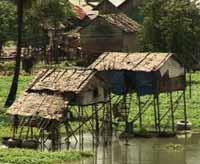 |
|
Cambodia’s capital Phnom Penh enjoys a beautiful
setting on the Mekong. The river provides both transport and
income for the city’s one million population. Now another,
unlikely, stretch of water - Beung Cheung Ek Lake – which
receives 80% of the city’s sewage - is offering economic
opportunities for three and a half thousand lower income
families through the cultivation of the edible aquatic plant -
Morning Glory - which is widely consumed by the city's expanding
population. See below link to this video which was produced in
conjunction with Hands On Films, the Papussa project's Albert
Salamanca (University of Durham UK), Khuong Khov, Sok Daream and
Sok Seyha (Royal University of Agriculture, Phnom Penh) and DFID
(Dept for International Development UK)
http://www.handsontv.info/series7/programme_4.html
|
|
|